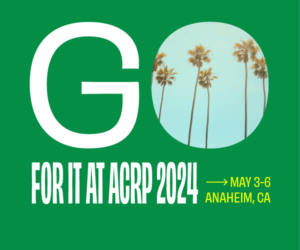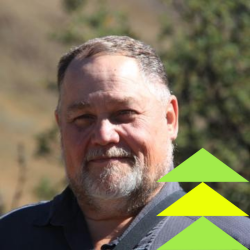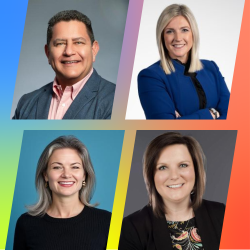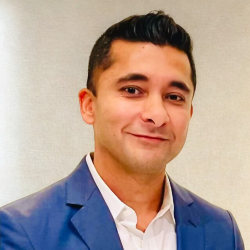When the ACRP 2024 pre-conference events get under way in Anaheim, Calif., in May, retiree John P. Rowell, Jr., BSN, MSN, will take a break from his home gardening and competitive sport shooting to once again present a day-long Friday workshop aimed at helping new clinical researchers face the many workforce-related challenges being thrown at them, as he has for nearly 25 years, this time teamed up with several colleagues.
The “Clinical Research 101: Setting the Foundation for Success” workshop is an evolution of previous early-career “tips and tools” workshops taught by Rowell at ACRP gatherings around the U.S. and for other audiences as far away as Australia. Because so many newcomers to the field have received little, if any, educational background on the intricacies of clinical research, workshop attendees will first learn the responsibilities of the key stakeholders in the industry, including those of clinical trial sponsors, contract research organizations (CROs), principal investigators, and institutional review board members. Next up, key guidelines, essential documents, and processes utilized in clinical research will be covered, such as regulations, informed consent, and safety reporting. The workshop is aligned with the International Council for Harmonization’s E6 Good Clinical Practice (GCP) Guidelines and the ACRP Core Competency Guidelines for clinical research professionals.
Further, the workshop will be divided into two parts—with all attendees together for the first half of the day to learn the general information, and then broken up into one group of clinical research site team members, another group of investigators, and yet another of sponsor/CRO team members, to emphasize the unique responsibilities pertaining to their varied tasks.
Co-instructors will help Rowell teach the workshop for up to 100 attendees at ACRP 2024. Joining him will be Mary Lord, RN, MS, CCRA, a CRA Manager in Site Management and Monitoring for Merck; Brian Hollis, MD, CPI, a Research Investigator for Quality Clinical Research; Laura Herrera, DNP, APRN, FNP-C, CPI, a Sub-Investigator with Western Sky Medical Research and an instructor and consultant at The Clinical Trial Academy in El Paso, Texas; and Cassandra Reynolds, a Clinical Trials Manager in Cardiovascular Medicine at Vanderbilt University Medical Center. Based on their different roles in clinical research, workshop attendees will also receive specialized recommendations through daily contact with the workshop leaders about which educational sessions they might wish to attend during the Saturday through Monday regular conference schedule. Such ongoing contact will allow the attendees to get expert feedback on any questions arising from their first-time exposure to other clinical research topics, opportunities, and challenges as the event continues.
“We are targeting the newer players in clinical research from both study sites and industry sponsors,” Rowell says. “Most are sent by their employers, but it’s up to many of them to have initiated the conversation about attending and to justify doing so, based on the benefits such training will bring to them and their organizations.”
Workshop—Clinical Research 101: Setting the Foundation for Success
Join John, Mary, Brian, Laura and Cassandra, at ACRP 2024 [May 3 – 6; Anaheim, CA], as they host a workshop that is aligned with the ICH E6 Good Clinical Practice Guidelines and the ACRP Core Competency Guidelines to help build a solid foundation of knowledge for all clinical research professionals. View complete schedule.

Although the workshop’s general structure has been in place for so long, “We will be using new infographics developed by ACRP’s education and training team this time,” Rowell adds. “Work in this industry has changed a lot in recent years, especially in terms of so many people performing their duties remotely, so this has led to some changes in the workshop. Some clinical research coordinators (CRCs) never have face-to-face encounters with their contacts in sponsor organizations, which risks misunderstandings and raises the importance of sponsors ‘teaching’ site staff about proper research methods and GCP, or making sure they receive high-quality instruction from qualified sources.”
Like the fictional archaeologist Dr. Henry (Indiana) Jones, Jr., who was seen retiring from teaching only to join younger adventurers on a perilous quest in the recent Indiana Jones and the Dial of Destiny film, Rowell has not let capping off his official career keep him from helping others who are setting off on theirs. Most of his long career was spent at Louisiana State University (LSU), where he began in 1989 and became a CRC (holding certification in that role through ACRP for 24 years) in neonatal care and pediatric pharmacology research. He eventually served as Director of Clinical Research for the Feist-Weiller Cancer Center at the LSU Health Sciences Center in Shreveport from 2013 until his retirement, and has been CEO of his own Bio Research Consulting service since then.
Edited by Gary Cramer



